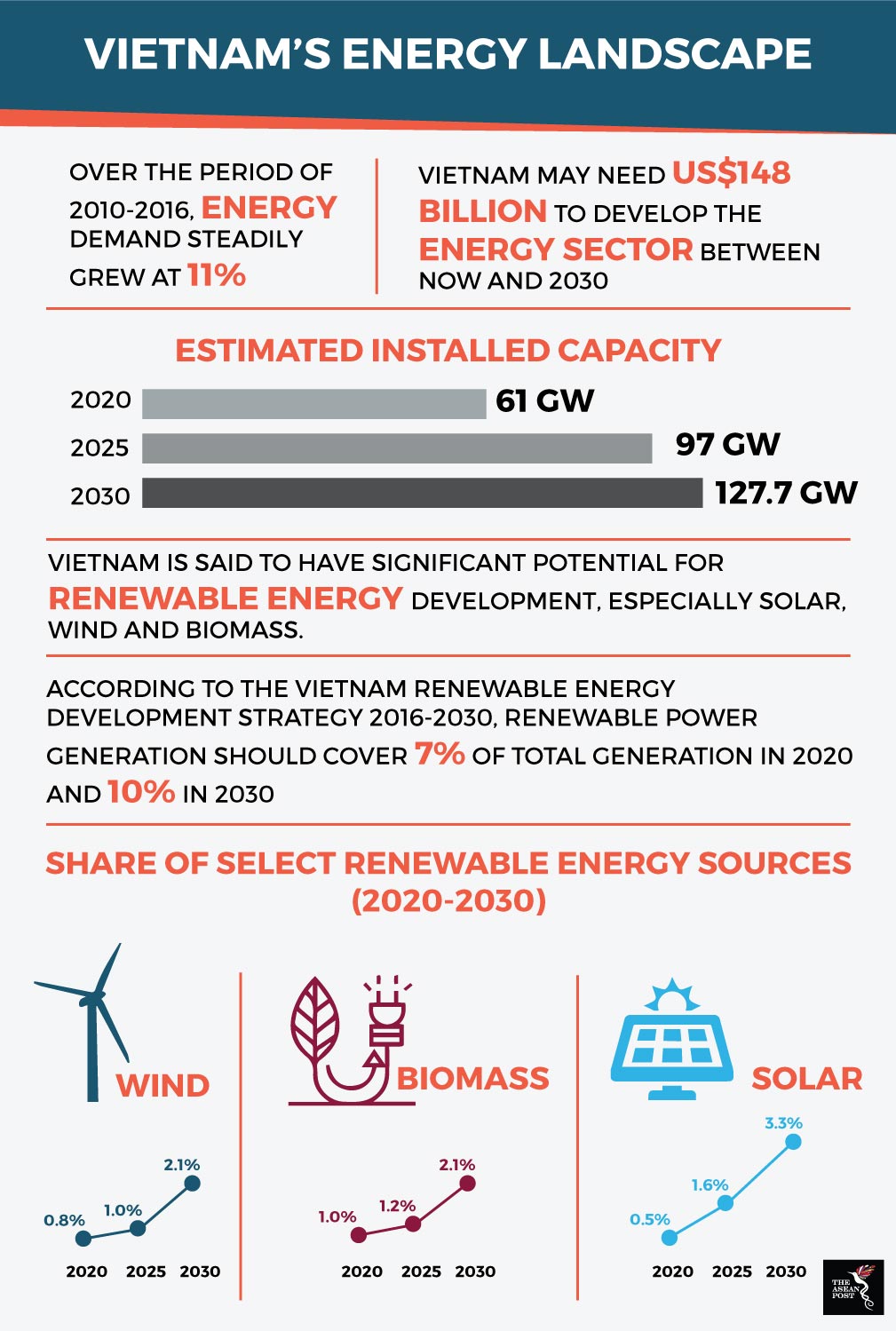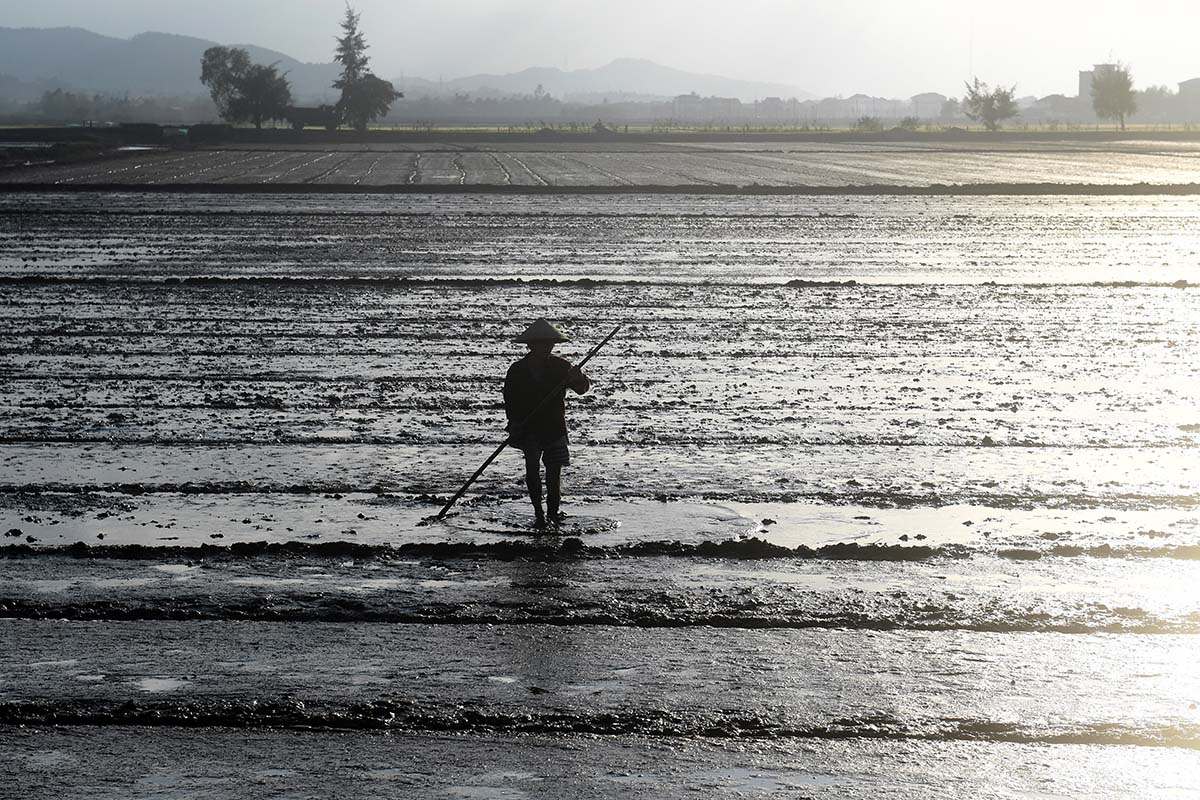Sustainable energy development is a challenge when meeting rising energy demands especially in developing economies. However, Vietnam is one ASEAN nation that is up to the task.
According to the country’s National Energy Development Plan, energy demand forecasts indicate that by 2035, the total final energy demand will be more than double than levels in 2015. The scenario in 2035 demonstrates that energy consumption will see the highest growth of 5.7 percent in the transportation sector – which covers 27.5 percent of the country’s total energy demand. Besides that, the industrial sector, covering 45.5 percent will see growth levels of approximately five percent between 2016 and 2030.
The socialist republic also estimates that to feed growing electricity demands, it needs to boost its installed capacity to 61GW, 97GW, and 127.7GW by 2020, 2025, and 2030, respectively. In addition to that, Vietnam would require considerable financing, upwards of US$148 billion in order to further develop its energy sector from now to 2030.
Energy mix outlook
Within Vietnam’s energy mix, coal has seen an uptick in terms of its share in Vietnam’s primary energy supply. Between 2000 and 2015, its share grew from 15 percent to 35 percent. According to an outlook report published in 2017 by the Danish Energy Agency in collaboration with the Vietnamese Ministry of Industry and Trade (MOIT), this trend is expected to continue into the foreseeable future.
In the power generation sector, as the demand for electricity increases, more coal is needed to power coal-fired power plants. Such projects are encouraged by the government to maintain a stable supply of electricity in the northern and southern areas of the country. However, the MOIT states that in the long run, coal’s share within the power generation mix will diminish from 47.9 percent in 2014-2015 to 34.7 percent in 2016-2020.

Moving forward, Vietnam is looking to move towards cleaner sources of energy, which comes in two forms – “clean” fossil fuels and renewable energy. Clean coal is touted as a response towards the burgeoning shift towards renewable energy. Vietnam is in the midst of building a supercritical power plant in Thanh Hoa province. Such a power plant is supposed to be more efficient than regular thermal power plants, hence, reducing unit costs of power and carbon dioxide (CO2) emissions. However, the project has now come under fire since its environmental assessment report indicated that it would generate twice the amount of CO2 compared to an average power plant in Vietnam.
Herein lies the conundrum with supposedly “clean” fossil fuel. No matter the advances in technology that reduce its environmental impact, it is still incomparable to the low carbon footprints of renewable energy sources.
Renewable potential
Vietnam’s shift to renewables was recently apparent in its joint efforts with the European Union (EU) to form the EU-Vietnam Energy Facility worth US$133 million (€108 million) that would assist in implementing the EU's Energy Sector Policy Support Programme. This assistance is part of a larger indicative grant allocation of US$426 million (€346 million) to support the sustainable energy development of the Vietnamese energy sector between 2014 and 2020 – the largest such grant contribution by the EU to a single country thus far.
The aim of the project is to improve access to sustainable energy sources in rural parts of the country as well as to promote a more sustainable energy sector. Two percent of the Vietnamese population still lacks access to electricity and many live in rural areas stymied by rough, mountainous or islandic terrain. The project would be able to provide reliable access to about 1.2 million such households.
“Vietnam, one of the most exposed countries in the world to climate change, is facing major energy challenges to maintain the path of its socio-economic development. While the EU response cannot address all these challenges, it can together with other development partners influence policies and choices that would aim at making the sector cleaner and more sustainable,” said European Commission Director-General of International Cooperation and Development, Stefano Manservisi during the launch.
The grant can be used to expand pre-existing renewable sectors in Vietnam including solar, wind and hydro. As Vietnam strives to remain globally relevant in the fight to combat climate change, such developments are definitely a step in the right direction.
